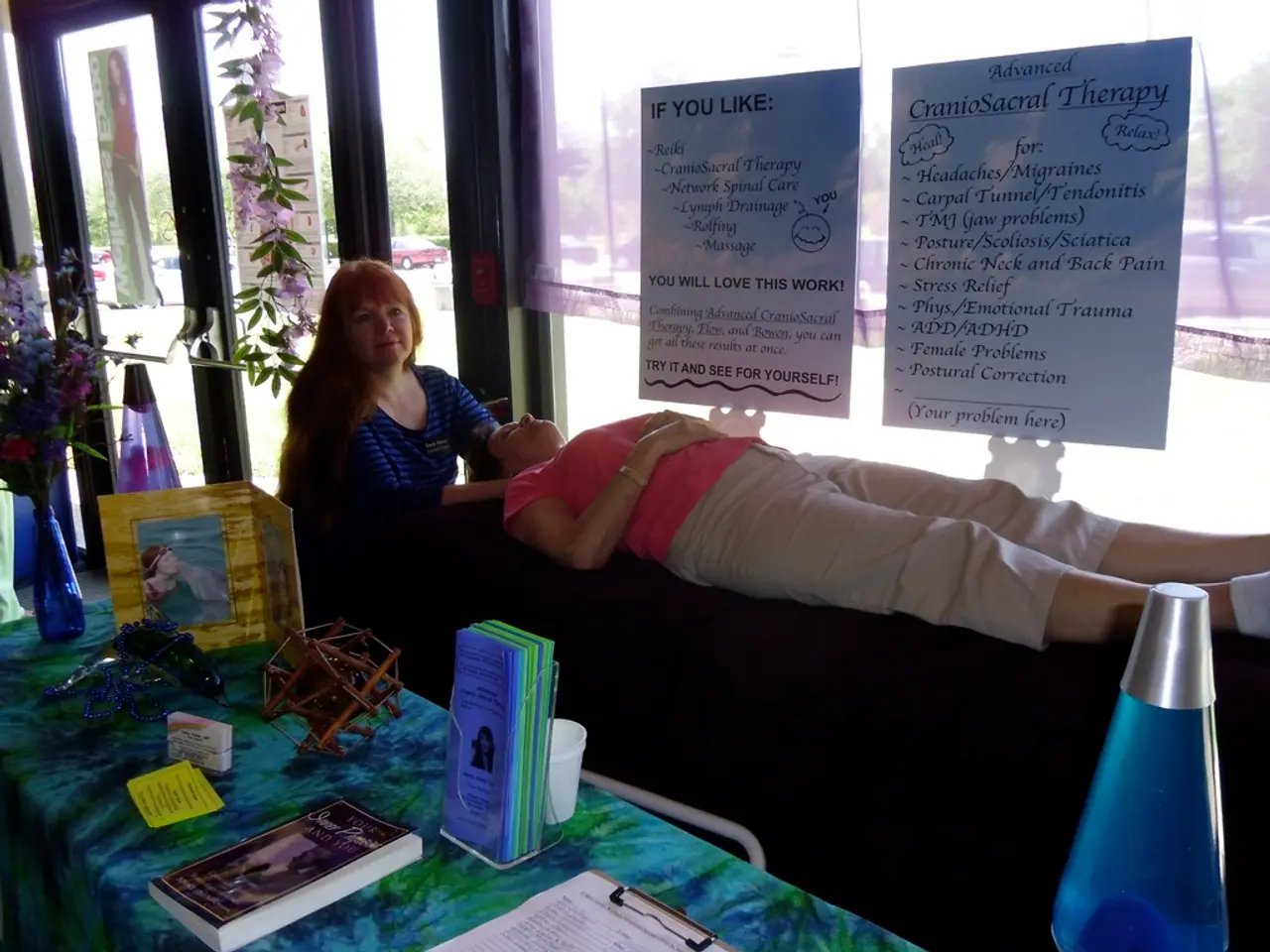Strategies for Overcoming Work-Related Stress
In today's fast-paced work environment, many employees are grappling with burnout due to unsustainable work pressures and the challenges of remote work. However, understanding what works best for individual recovery and planning for it is crucial to break this cycle.
A wealth of scientific evidence supports several key strategies for recovering from work stress. These approaches integrate mental, physical, social, and organizational factors, forming a holistic framework for stress management.
**Mindfulness and Breathwork** Practices such as guided breathing exercises and mindfulness-based stress reduction have been shown to significantly reduce stress and depressive symptoms. By helping individuals observe their thoughts and emotions non-judgmentally, these techniques create a space to respond thoughtfully rather than react impulsively to stressors.
**Cognitive Behavioral Therapy (CBT)** CBT is a well-established method that helps individuals identify and challenge stress-inducing thought patterns. It equips people with tools to recognize stress triggers early and develop adaptive coping responses, promoting resilience and emotional balance.
**Physical Activity and Relaxation** Engaging in physical activities like yoga, walking, or progressive muscle relaxation supports stress management by improving physical and mental well-being. These activities can counteract the negative health impacts of chronic stress.
**Social Support and Group Interventions** Group therapy or resilience coaching sessions provide social connection and peer support, helping reduce feelings of isolation. Mentorship programs and team-building activities foster a supportive workplace culture, encouraging open communication and shared coping strategies for stress relief.
**Organizational and Lifestyle Adjustments** Effective stress recovery involves not only individual coping but also structural changes such as workload management, setting realistic expectations, and encouraging open discussions about stress in the workplace. Promoting healthy lifestyle habits—good sleep hygiene, balanced nutrition, and time management—strengthens overall resilience against work stress.
**Additional Insights from Research** - Psychological resilience moderates how individuals cope with work stress, influencing whether they use active or passive coping strategies. Tailoring interventions to resilience profiles can enhance effectiveness. - Preventing chronic stress through early recognition and management is crucial since prolonged stress can lead to anxiety, depression, weight changes, and unhealthy behaviors.
In addition to these strategies, taking short walks during micro-breaks, opening windows, and getting exposure to nature during the workday can aid in faster stress recovery. Micro-breaks can improve concentration, motivation, and energy levels. Exposure to daylight and indoor greenery at the workplace has a positive effect on work quality and overall health.
Disconnecting from work by engaging in unrelated activities like reading or running can lead to better recovery. Staying connected with nature directly or indirectly can be beneficial for recovery. Recovering from stress is a skill that requires understanding how and when to rest to return work stress to pre-stress levels.
Organizations are responding to employee demands by offering mental health support benefits like virtual mental support, additional days off, and flexible work schedules. Prioritizing active high-recovery activities can be more effective than passive activities for stress recovery. Having a choice of recovery activity can be motivating, but not having a choice can be demotivating.
Direct exposure to nature, such as walking through parks, can help recover from stress quickly and contribute to well-being. Active exercise that one enjoys can contribute to stress recovery. Devising an intentional recovery plan can help sustain energy, well-being, motivation, and boost performance and overall satisfaction.
- Incorporating education and self-development workshops on mindfulness, cognitive behavioral therapy, and physical activity into remote work environments can promote personal growth and enhance mental health, thereby contributing to workplace-wellness.
- By investing in health-and-wellness programs that foster employee recovery, such as encouraging breaks to walk outdoors, supporting nature immersion, and offering mental health resources, organizations can overcome the challenges of remote work and enhance the overall well-being of their employees.
- A comprehensive approach to remote work wellness should include not only personal stress management techniques like breathwork and cognitive behavioral therapy, but also organizational adjustments that prioritize mental health, such as flexible work schedules, mental health support benefits, and open discussions about work stress.





